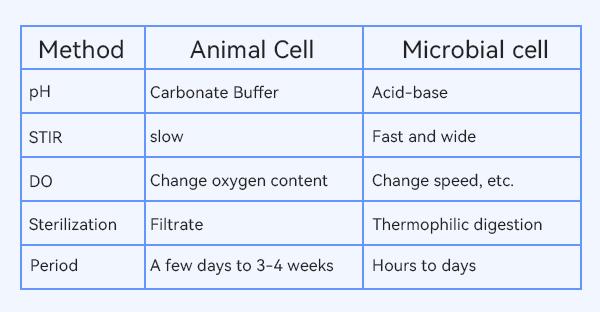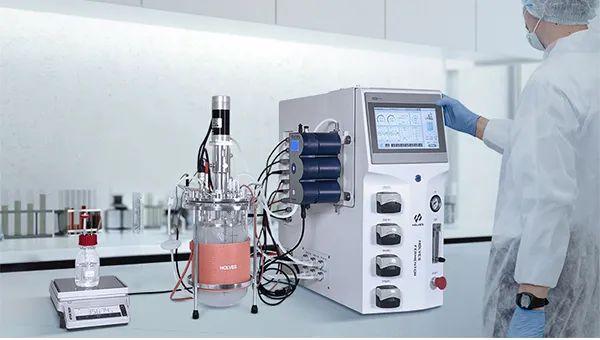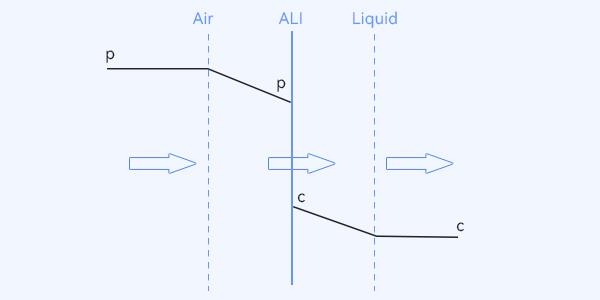Louis Pasteur, the famous French microbiologist, once said that "laboratory and invention are two closely related terms, without the laboratory, natural science will wither; once the scientist leaves the laboratory, he becomes a soldier who has surrendered his arms on the battlefield." There is also a saying in China, "A workman must first sharpen his tools if he is to do his work well".The progress and exploration of modern science and technology rely on a variety of experimental instruments and equipment. In the field of bioengineering, bioreactors are considered to be the best of all kinds of equipment.
Advantages of bioreactors
First of all, a bioreactor has significant advantages in terms of productivity. It is able to provide an ideal environment to support the growth of cells, microorganisms and metabolic processes. By optimizing the reaction conditions and providing appropriate culture media, bioreactors are able to achieve high-density production.
Also, bioreactors can be applied to many different types of reactions such as cell culture, microbial fermentation, and pollutant degradation. In contrast, traditional culture equipment is often unable to achieve such high yields and has a single range of applications. In addition, bioreactors allow for continuous production, resulting in higher production efficiency, saving time and resources.
Also, bioreactors can be applied to many different types of reactions such as cell culture, microbial fermentation, and pollutant degradation. In contrast, traditional culture equipment is often unable to achieve such high yields and has a single range of applications. In addition, bioreactors allow for continuous production, resulting in higher production efficiency, saving time and resources.

Second, bioreactors can precisely control key parameters such as temperature, pH, DO, and nutrient concentrations to meet the needs of the organism. This precise parameter control can improve the consistency and stability of product quality and reduce the generation of undesirable reaction products. It can also adjust parameters in the reaction through real-time monitoring, making the production process more controllable and predictable.
In addition, since the bioreactor can provide a relatively closed and stable environment, it can effectively prevent the influence and pollution from the external environment.
Disadvantages of bioreactors
Bioreactors still have some shortcomings.
1. Higher building and operating costs: The design, building and maintenance costs of bioreactors are very high, especially for large-scale reactors, in terms of equipment, materials, energy and so on, a lot of money has to be invested.
2. Highly specialized requirements: Bioreactors require complex operation and maintenance, which is highly specialized and requires highly skilled operators.
1. Higher building and operating costs: The design, building and maintenance costs of bioreactors are very high, especially for large-scale reactors, in terms of equipment, materials, energy and so on, a lot of money has to be invested.
2. Highly specialized requirements: Bioreactors require complex operation and maintenance, which is highly specialized and requires highly skilled operators.

3. Safety Risks: During the production of a bioreactor, there may be potential safety risks. Improper operation and control can lead to the escape of microorganisms or metabolites, and these risks may be unpredictable.

The Future of Bioreactors
In the future, the development trend of bioreactors will mainly focus on the two aspects of improving production efficiency and reducing costs. The new bioreactors will be more intelligent and automated, and through the introduction of advanced sensors and control systems, more precise parameter control and more detailed production optimization will be achieved. At the same time, miniaturized and modular bioreactors will also become the direction of development to adapt to different scales and demands of production. In addition, more attention will be paid to the sustainability and environmental friendliness of bioreactors to reduce the consumption of resources and energy.
Here is the Holves brand website, https://www.bjholves.com/. Providing different types of industry information, technical knowledge, and solutions, we have developed and produced several new laboratory fermenter, bioreactor, tangential flow filtration system and other equipment to meet your needs from experimental to industrial production.
Here is the Holves brand website, https://www.bjholves.com/. Providing different types of industry information, technical knowledge, and solutions, we have developed and produced several new laboratory fermenter, bioreactor, tangential flow filtration system and other equipment to meet your needs from experimental to industrial production.
